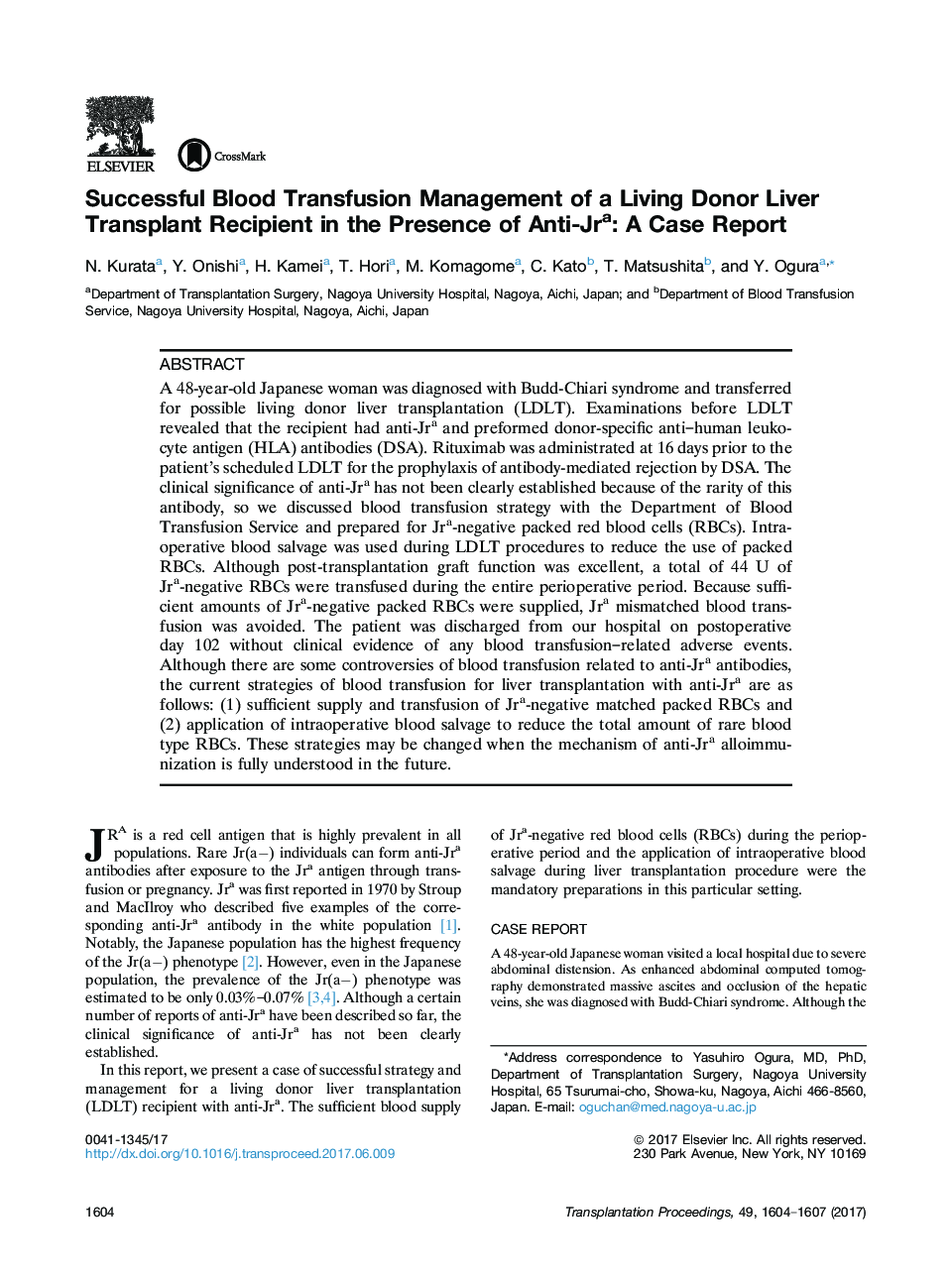| Article ID | Journal | Published Year | Pages | File Type |
|---|---|---|---|---|
| 5728744 | Transplantation Proceedings | 2017 | 4 Pages |
â¢This is a successful case report of liver transplantation for rare blood type Jra.â¢Perioperative blood transfusion strategies for anti-Jra antibodies are described.â¢Intraoperative blood salvage was used during liver transplantation procedures.â¢Rituximab did not show any effects in the level of anti-Jra titers.
A 48-year-old Japanese woman was diagnosed with Budd-Chiari syndrome and transferred for possible living donor liver transplantation (LDLT). Examinations before LDLT revealed that the recipient had anti-Jra and preformed donor-specific anti-human leukocyte antigen (HLA) antibodies (DSA). Rituximab was administrated at 16 days prior to the patient's scheduled LDLT for the prophylaxis of antibody-mediated rejection by DSA. The clinical significance of anti-Jra has not been clearly established because of the rarity of this antibody, so we discussed blood transfusion strategy with the Department of Blood Transfusion Service and prepared for Jra-negative packed red blood cells (RBCs). Intraoperative blood salvage was used during LDLT procedures to reduce the use of packed RBCs. Although post-transplantation graft function was excellent, a total of 44 U of Jra-negative RBCs were transfused during the entire perioperative period. Because sufficient amounts of Jra-negative packed RBCs were supplied, Jra mismatched blood transfusion was avoided. The patient was discharged from our hospital on postoperative day 102 without clinical evidence of any blood transfusion-related adverse events. Although there are some controversies of blood transfusion related to anti-Jra antibodies, the current strategies of blood transfusion for liver transplantation with anti-Jra are as follows: (1) sufficient supply and transfusion of Jra-negative matched packed RBCs and (2) application of intraoperative blood salvage to reduce the total amount of rare blood type RBCs. These strategies may be changed when the mechanism of anti-Jra alloimmunization is fully understood in the future.
